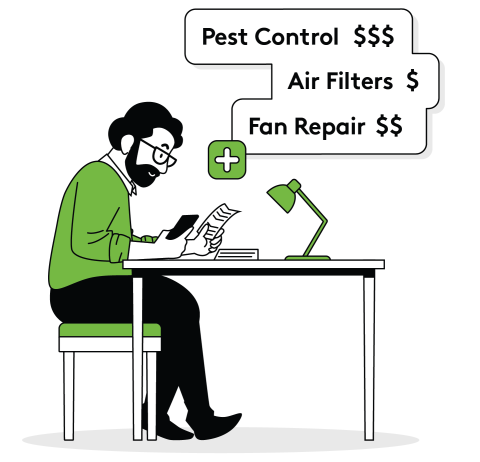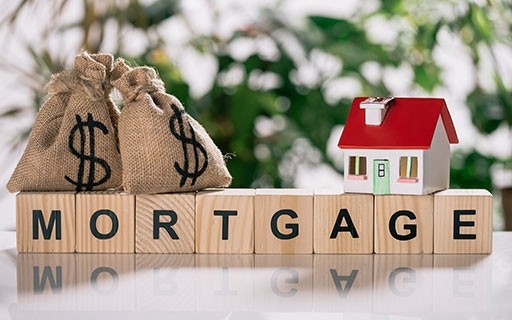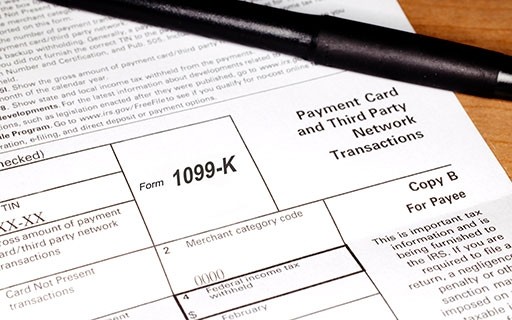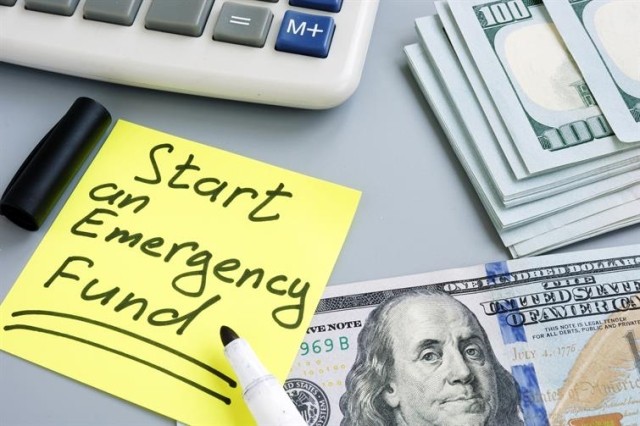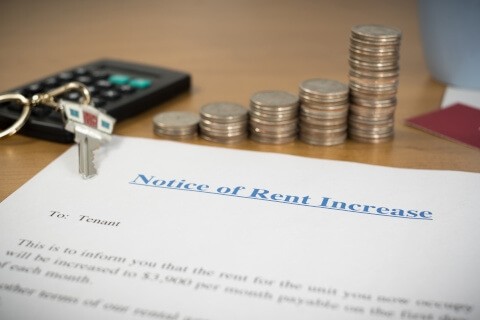
It’s commonly thought that you need to have a good amount of money to purchase real estate. While some investors can put down a 20 percent payment on a rental property, it is not possible for everyone. However, there are many ways to invest in real estate with no money.
Investing in real estate is a great way to make some money, whether it be your main source or passive income. Learn real estate investment tips and how to invest with no money!
Ways you can invest in real estate with little money:
- Seller financing
- Joint venture
- Co-borrower
- Private loan
- Home equity
- Real estate wholesale
- REITs
- House flipping
- Taking on the seller’s mortgage
- Rent-to-own
- Rent your home
Seller Financing
Seller financing, also known as owner financing and a purchase-money mortgage, is when the seller handles the mortgage process instead of a financial institution. Depending on what terms you negotiate you may be able to avoid a large down payment, easier approval, low or no interest rates, and other flexible terms like payment schedule.
However, it can be much riskier to do seller financing. There are fewer regulations which could put you at risk. If you are taking a loan out, you could be hit with higher interest rates. Consider the pros and cons of seller financing to see if it is right for you or not.
Joint Venture
A joint venture is a business partnership between two entities, like you and an investor, where you combine your resources to invest in real estate. While you are working together, you are still separate entities. Any profits or losses are split according to the joint venture agreement.
A common scenario is that the investor might supply the capital while you take on other aspects of the investment. This could include bringing knowledge, time, labor, flipping the property, and whatever else you decide on.
Co-Borrower
A co-borrower is when you take out a loan with someone else. So, both of your credit histories, incomes, and other qualifications are used when applying for the loan. This means that both of you are responsible for paying it back as well.
Having a co-borrower can be great if you need a boost in qualifications when it comes to applying for a loan or want assistance in making the down payment or closing costs. The coborrower’s name may appear on the property title if you apply for a mortgage together.
Private Loan
A private loan (private financing) is a loan organized between you and a private lender. This private lender could be a friend, family member, or private investor instead of the typical bank. With a private loan, you can negotiate terms such as interest rates, repayment schedules, and more. These loans are usually short-term, meaning you need to be able to pay them back quickly.
Keep in mind that there are risks that come with private loans. A private investor may charge have a higher interest rate and are secured by property or other assets in case of default. They are a fast and accessible way to invest in real estate as long as you know what you’re getting into.
Home Equity
Your home equity is the difference between what you owe for your mortgage and the value of your home. You can find your home equity using this formula:
- Home equity = Home Value – What You Owe on Your Mortgage.
For example, if your home is worth $300,000 and you still owe $200,000 on your mortgage then you have $100,000 in home equity. There are a couple of different methods where you can use your home equity to borrow money.
Home equity line of credit
A home equity line of credit (HELOC) is a line of credit borrowed against the equity of your home. This means your home is collateral if you don’t pay it back. HELOCs can be likened to a credit card as you can borrow what you need up to a certain limit. Interest is only charged on what you borrow and not the limit. As you repay it then you can borrow more.
With the flexibility of HELOCs, many people use this to do renovations and improvements to a property or as a down payment. You are able to take out what you need to do renovations or such instead of having to take out a lump sum.
While a HELOC can look like a risky gamble since you are putting your house up as collateral, there are benefits of a HELOC (as long as you pay it back). A HELOC usually has a lower interest rate than other types of loans, and the interest may even be tax deductible. HELOCs have variable rates, which are rates that change depending on market conditions, so your payments could go up.
Home equity loan
With home equity loans, you will get the money you borrow as one sum and the amount is dependent on the equity of your home. Your home is also collateral if you cannot pay the loan back. Most lenders only want you to borrow 80 percent or less of the equity of your home.
Unlike HELOCs, home equity loans have a fixed rate. If you’re considering buying a second property, a home equity loan can be used as a source for the down payment, but it comes with the risk of putting your primary home on the line.
Cash-out refinancing
Cash-out refinancing is when you remortgage your home by taking out a larger mortgage, paying off your previous mortgage, and then getting the remaining funds. You can use those funds to invest in more real estate like using it as a down payment.
It is a good method for those who need money for a big expense like a down payment or renovations. Only use this method if you can comfortably afford the higher monthly payments, the higher total mortgage loan balance, and understand the risks.
Real Estate Wholesale
If you decide to try real estate wholesale, you will act as the middleman between a seller and a buyer. You will enter a contract for a home with the seller, usually putting down a small deposit. This doesn’t mean you are buying the house, rather you are promising that you will sell the house for a certain amount in a stipulated time period.
Then you will go find an investor/buyer who wants to actually purchase the house. Once that individual has been found, you will reassign the contract to the buyer at a higher price that both parties agree on. The difference in the price you got the contract and what you are selling the contract for is the wholesale fee and your profit.
Be aware that you might need a real estate license and need to follow laws and regulations when it comes to real estate wholesale. Be sure to check into your city and state’s laws regarding it and speak with a professional.
REITs (Real Estate Investment Trusts)
A REIT is a company that owns/finances real estate, and you will buy shares in one like you do with stocks. While you don’t get physical property when you invest in an REIT (Real Estate Investment Trusts), you can still make money from them. It requires less money to invest in REITs than buying property and you have a greater liquidity.
Your portfolio will also be more diverse than just one property as REITs own a variety of property types, from apartments to office buildings. You also don’t have to worry about any of the property management aspects, just managing your shares and finances.
House Flipping
Buying a house that is a fixer-upper, renovating it, and then selling it at a higher price is called house flipping. While it seems simple, there is quite a bit of work that goes into it. You need to consider the costs and labor it will take to renovate the house, which will affect the sale price.
Taking on the Seller’s Mortgage
You can assume the seller’s mortgage and take over the same terms, remaining balance, and interest rate. This is not always possible as some loans cannot be assumed. The lender still has to approve the loan assumption. You’ll still have to cover the difference between the mortgage and the purchase price, but you can get a lower interest rate and closing costs.
Rent-to-Own
Rent-to-own is another solution when you cannot afford to buy. It allows you to rent a home with either the option or obligation of purchasing the home at the end of the contract agreement, depending on the type of rent-to-own contract you choose.
Renting to own has less upfront cost, and you can lock in the price of the property. Part of your monthly rent usually goes towards the purchase price or down payment, so you are building equity while renting.
Depending on the rent-to-own contract, you may have to buy the house at the end of the contract or face legal repercussions. A higher rent may be charged as part of it goes towards the purchase. You also face the risk of being stuck with the agreed upon purchase price even if the property value falls.
Rent Your Home
Sometimes referred to as house hacking, renting part of your primary home is a great way to get started with real estate investment. Consider purchasing a duplex or triplex, where you can live in one unit and rent out the other units. This allows you to have another source of income to use to pay the property off.
Mortgage lenders often require a lower down payment for owner-occupied properties. The loan requirements for a primary residence are also lower. If you don’t have several units in your property, you can still rent out a room or basement.
Make a Good Investment with the ROI Calculator
The Rental ROI Calculator on Apartments.com helps you determine the profitability of your real estate investment. The ROI calculator is easy to use. Simply input costs and expenses.
In seconds, the ROI calculator has done all the calculations for you and shows your profit after one, five, 15, and 30 years. You’ll get six different metrics (annual cash flow, capitalization rate, cash-on-cash ROI, net operating income, initial investment, and gross rent multiplier) to see how profitable your investment will be. Determine whether your property is a good long-term investment with the ROI calculator on Apartments.com!
FAQ
How do I find the ROI of a property?
You can calculate your ROI by using this formula:
- ROI = (investment gain – investment cost) ÷ investment cost
Finding the ROI is one of the ways to see how profitable your real estate investment could be in the future. However, you should also factor in annual cash flow, capitalization rate, cash-on-cash ROI, net operating income, initial investment, and gross rent multiplier.
How can I finance rental property?
There are different ways you can finance rental property. The most traditional and common way is getting a mortgage. There are many kinds of mortgages to consider, like conventional mortgages that include conforming and non-conforming loans.
What benefits are there to owning rental property?
Rental property is a great way to make money, but there are also tax benefits to owning a rental. You can “deduct the ordinary and necessary expenses for managing, conserving, and maintaining your rental property,” according to the U.S. Internal Revenue Service (IRS). These deductible rental expenses include:
- Mortgage interest
- Property tax
- Depreciation
- Repair and maintenance costs
- Operating expenses
This article is for informational purposes only and should not be considered as a substitute for financial advice. Always consult with a qualified expert or professional for guidance specific to your situation.
